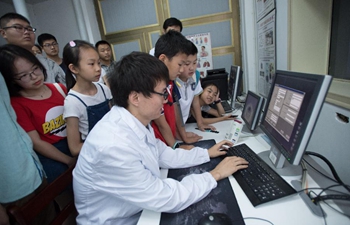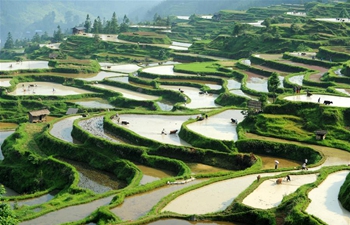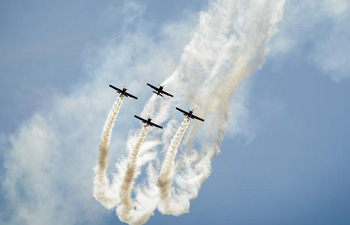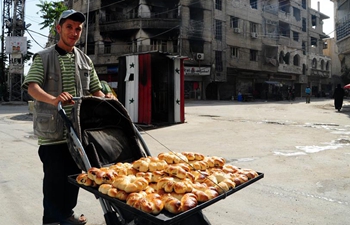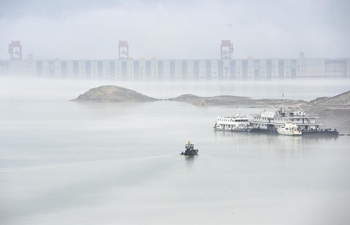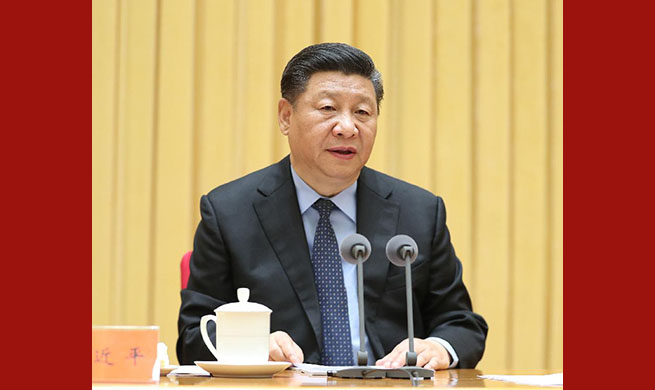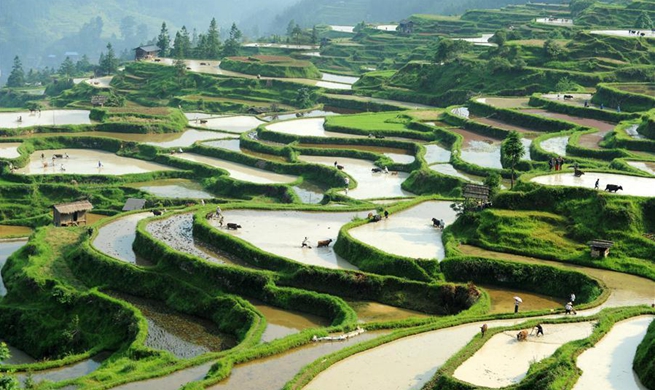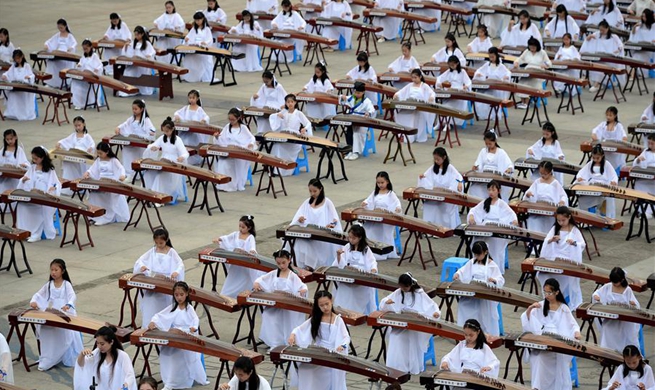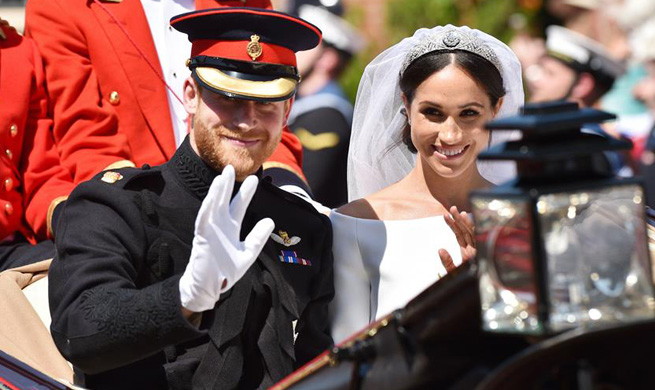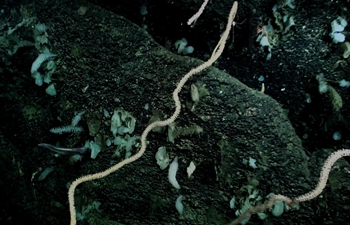BAGHDAD, May 20 (Xinhua) -- Iraqi Prime Minister Haider al-Abadi held a meeting with Moqtada al-Sadr, whose al-Sa'iroon political coalition won most seats in the country's May 12 parliamentary elections, to discuss the formation of a new government, the Iraqi government said on Sunday.
A statement by the Premier's Office said that the meeting was held early in the day and that Abadi "called on all political blocs to accept the final results announced earlier by the electoral commission, and those who have objections should pursue legal channels."
Abadi said the meeting was held to discuss "working together to speed up the formation of a new government that should be strong and provide services, jobs, improving living standards and fighting corruption," according to the statement.
For his part, Sadr said "the meeting was a reassuring message that the next government would take care of all the Iraqi people," and "our hands are extending to all those who want to build Iraq."
Sadr asserted "the need for forming a new government that would meet the people's aspirations as soon as possible," it added.
Early on Saturday, the Independent High Electoral Commission (IHEC) announced the final results of the parliamentary elections, which showed that the al-Sa'iroon won 54 seats in the upcoming 329-seat parliament.
The electoral commission said that al-Fath coalition, led by Hadi al-Ameri, came in the second place with 47 seats, while the al-Nasr Coalition, led by current Prime Minister Haider al-Abadi, came in third with 42 seats, and the State of Law Coalition headed by Vice President and former Prime Minister Nuri al-Maliki garnered 25 seats.
The two major Kurdish parties, Kurdistan Democratic Party (KDP), headed by Masoud Barzani, and Patriotic Union of Kurdistan (PUK), took the lead in the Kurdish region and in the ethnically-mixed province of Kirkuk with 25 seats for the KDP and 18 for the PUK, according to IHEC figures.
On May 12, millions of Iraqis went to 8,959 polling centers across the country to vote for their parliamentary representatives in the first general election after Iraq's historic victory over the Islamic State group last December.
Some 90 political entities and 7,000 candidates were vying for 329 seats in the parliament.





